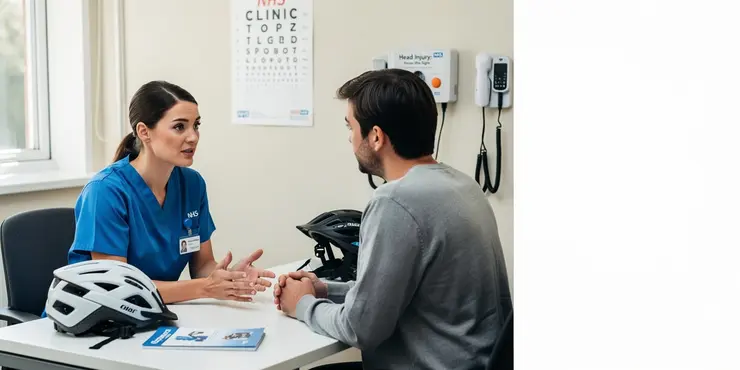
Find Help
More Items From Ergsy search
-
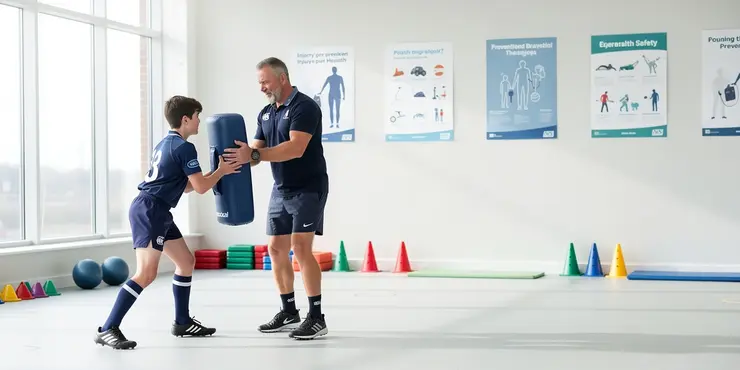
How can concussions be prevented?
Relevance: 100%
-
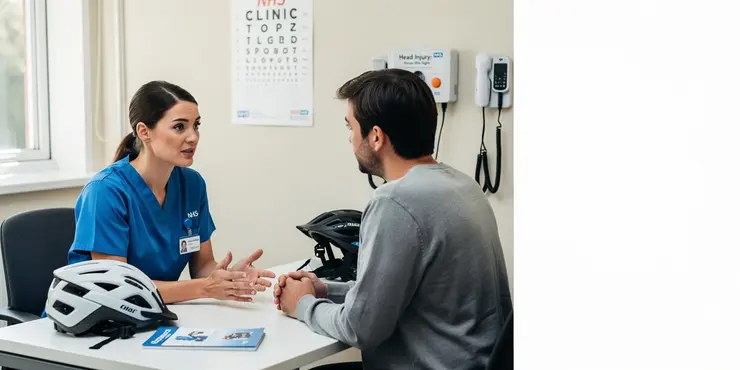
Is there any way to prevent concussions?
Relevance: 100%
-
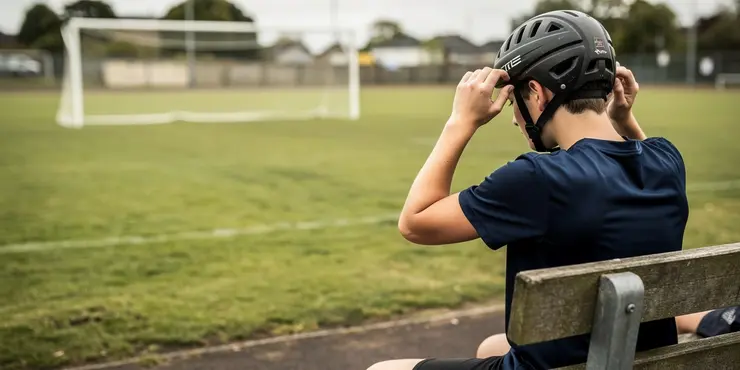
How can concussions be prevented?
Relevance: 100%
-
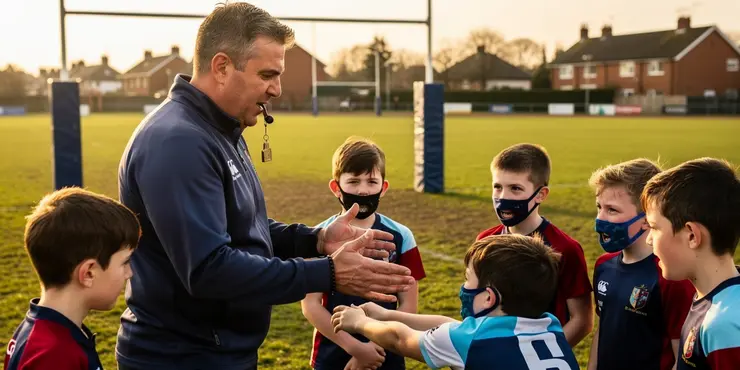
How can concussions be prevented in rugby?
Relevance: 95%
-
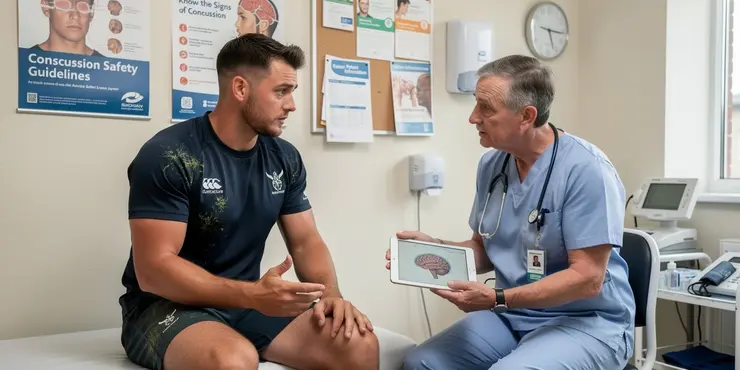
Are helmets required in rugby to prevent concussions?
Relevance: 95%
-
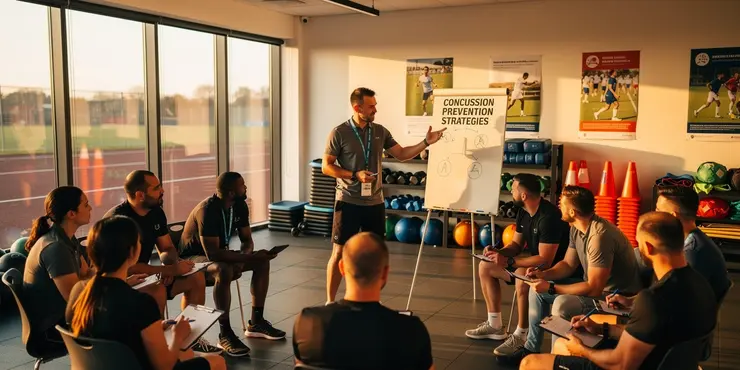
Is training available for coaches to help prevent concussions?
Relevance: 92%
-
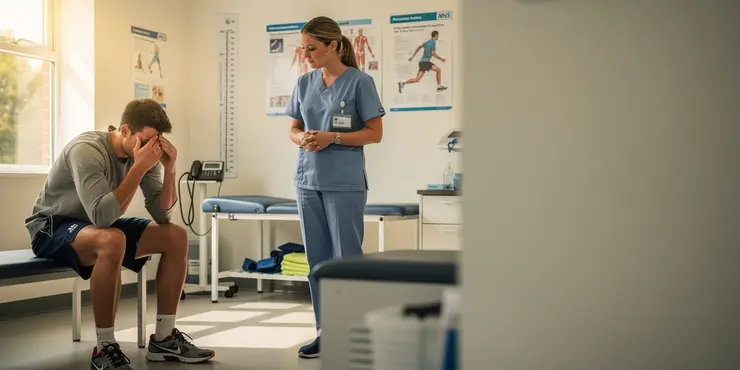
What is Concussion?
Relevance: 83%
-
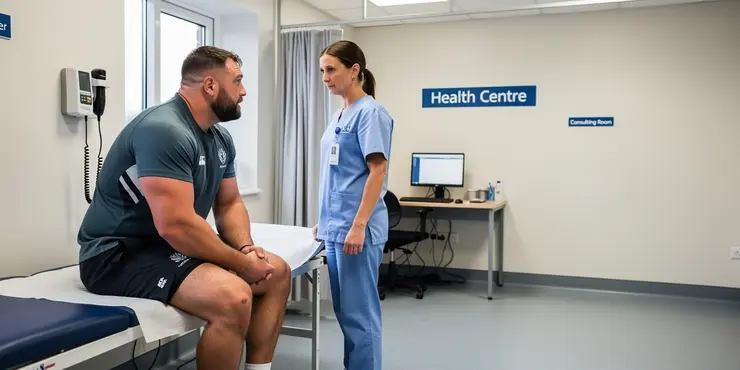
Are Concussions common in Rugby?
Relevance: 79%
-
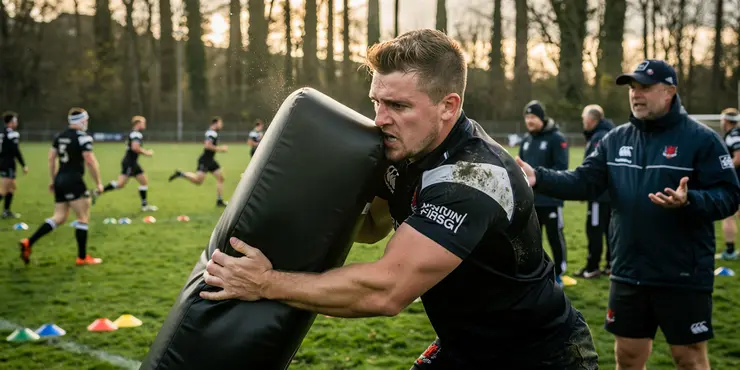
What causes concussions in rugby?
Relevance: 76%
-
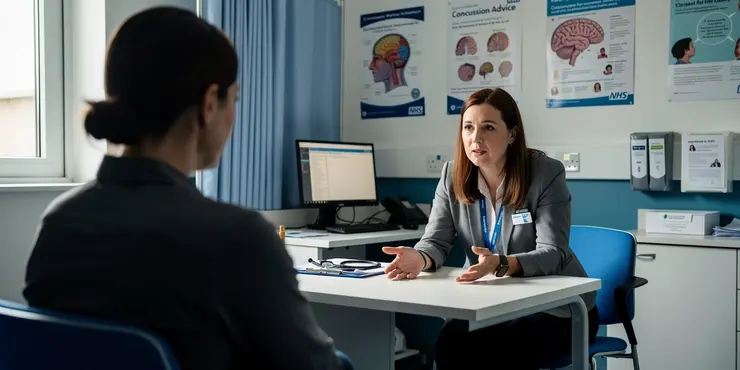
How is a concussion diagnosed?
Relevance: 75%
-

Is headache a symptom of a concussion?
Relevance: 75%
-
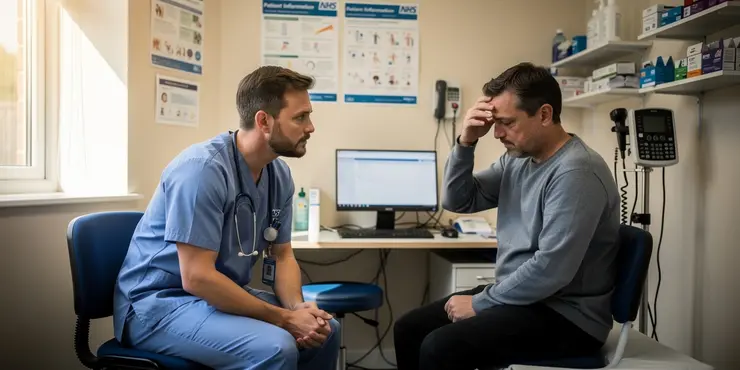
How is a concussion diagnosed?
Relevance: 73%
-
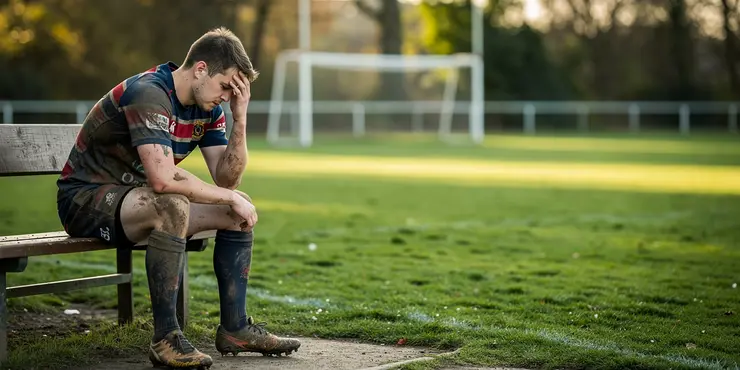
Can playing sports increase the risk of a concussion?
Relevance: 72%
-
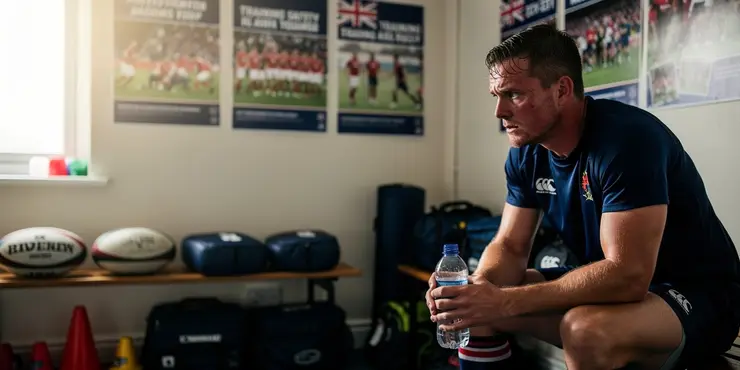
Is there a protocol for managing concussions in rugby?
Relevance: 71%
-
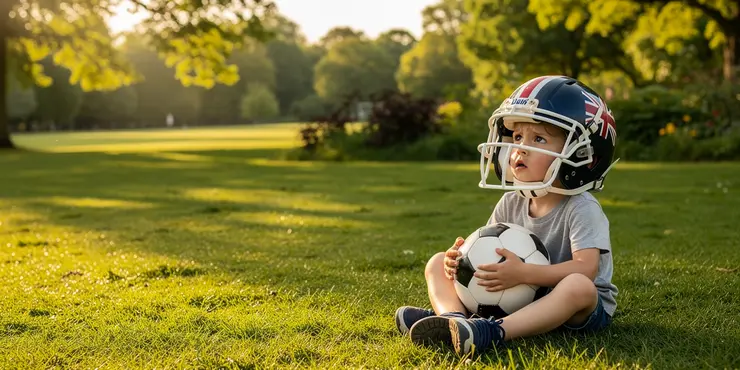
Are children more susceptible to concussions than adults?
Relevance: 71%
-

Can concussions lead to mental health issues?
Relevance: 71%
-

Can a concussion cause memory problems?
Relevance: 71%
-
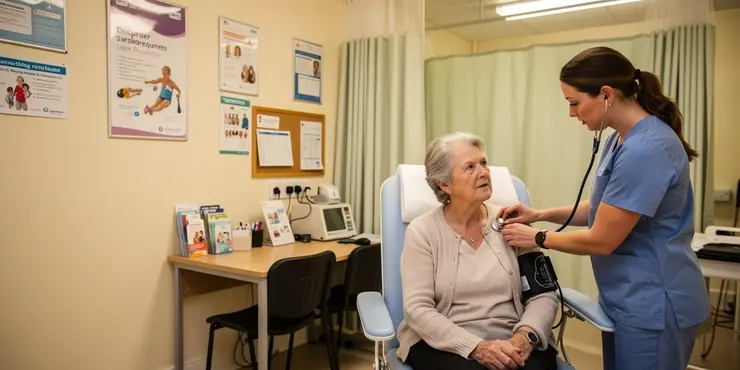
Is it safe to sleep after a concussion?
Relevance: 71%
-

What are common symptoms of a concussion?
Relevance: 70%
-
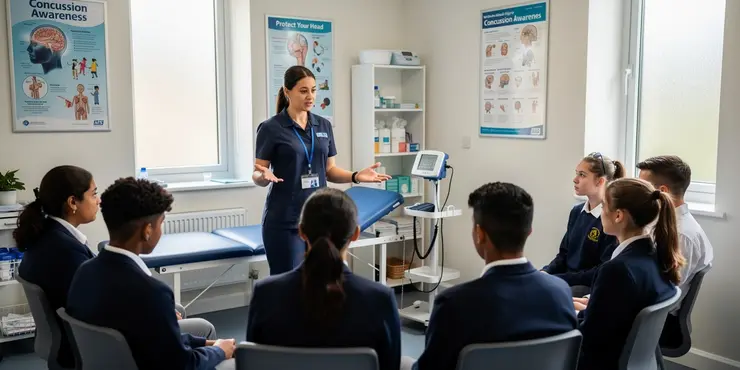
What role do schools play in managing concussions?
Relevance: 70%
-
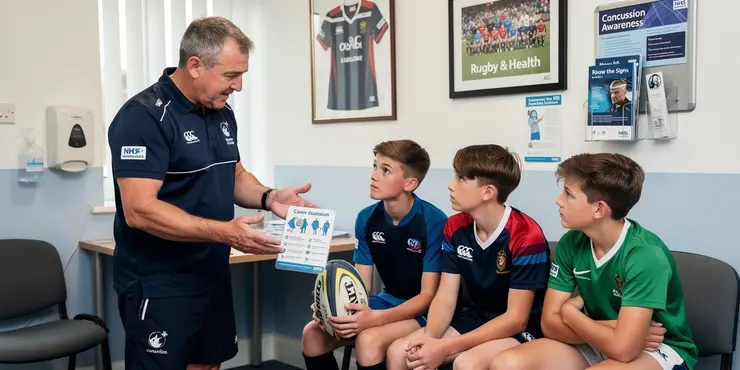
Is there a difference in concussion rates between amateur and professional rugby?
Relevance: 70%
-
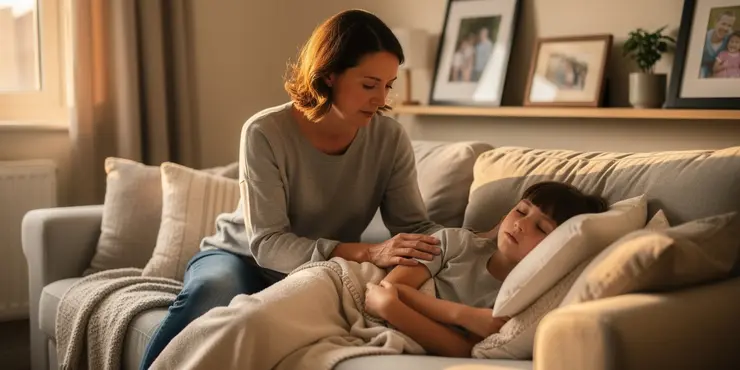
Is it safe to sleep after a concussion?
Relevance: 69%
-
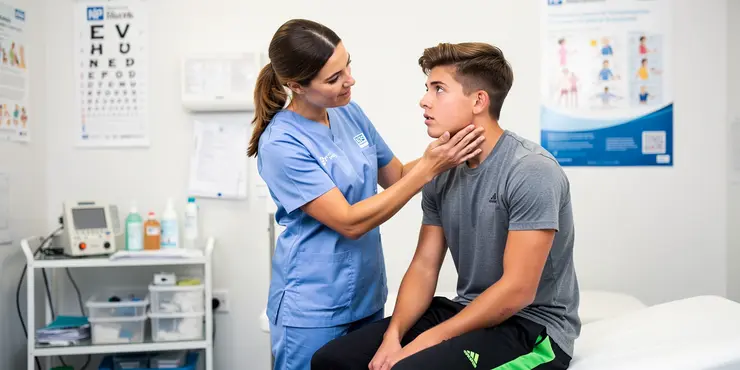
Can concussions occur without a direct blow to the head?
Relevance: 67%
-
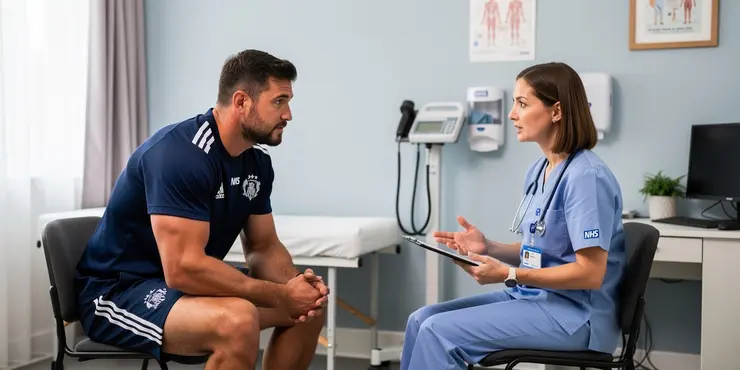
How do concussions impact long-term health in rugby players?
Relevance: 67%
-
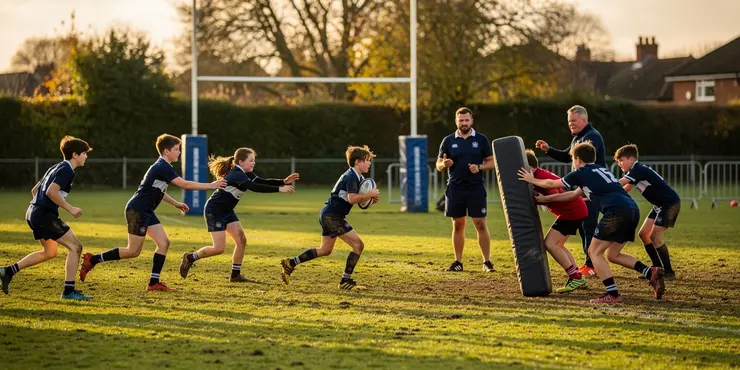
What age groups are most at risk for concussions in rugby?
Relevance: 66%
-
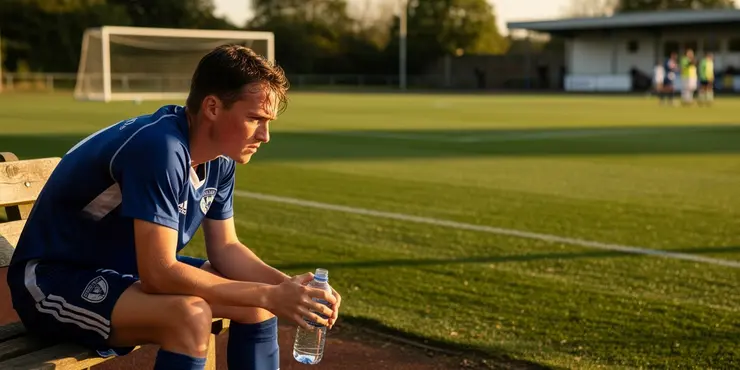
Can players return to play on the same day after a suspected concussion?
Relevance: 66%
-
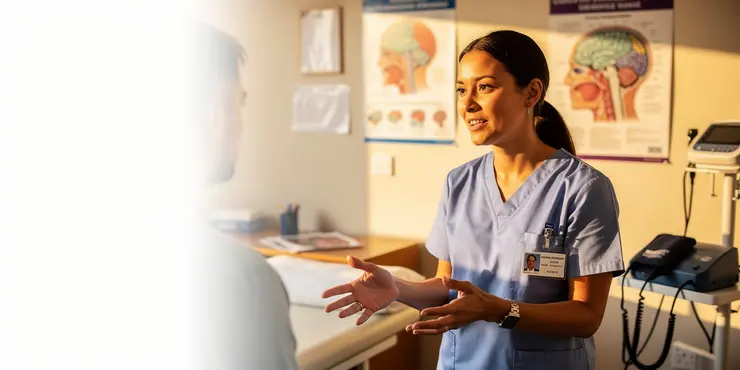
When is it safe to return to normal activities after a concussion?
Relevance: 65%
-
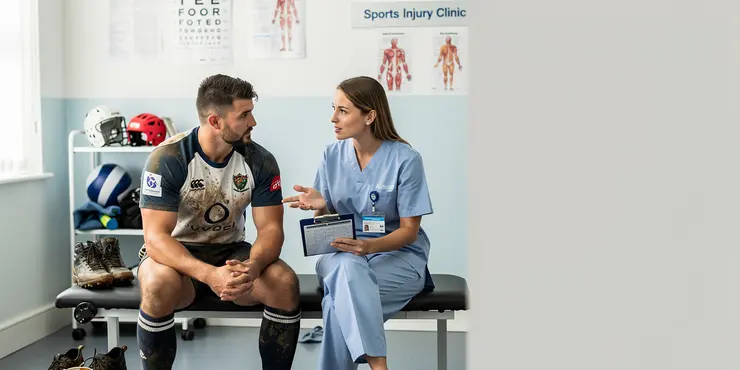
What support is available for rugby players who suffer concussions?
Relevance: 65%
-
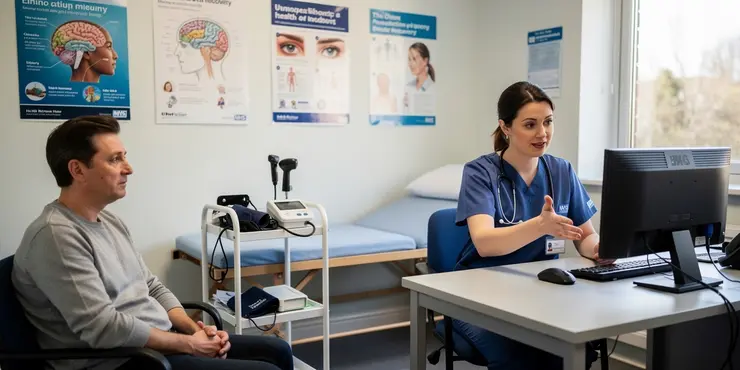
Should people with a concussion avoid screens and technology?
Relevance: 65%
-
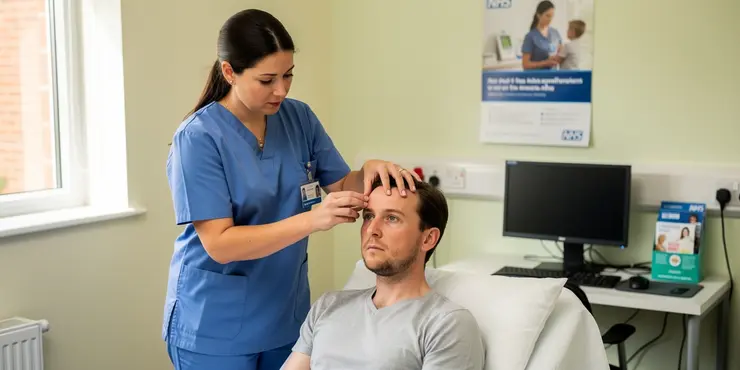
What immediate steps should be taken if someone has a concussion?
Relevance: 63%
-
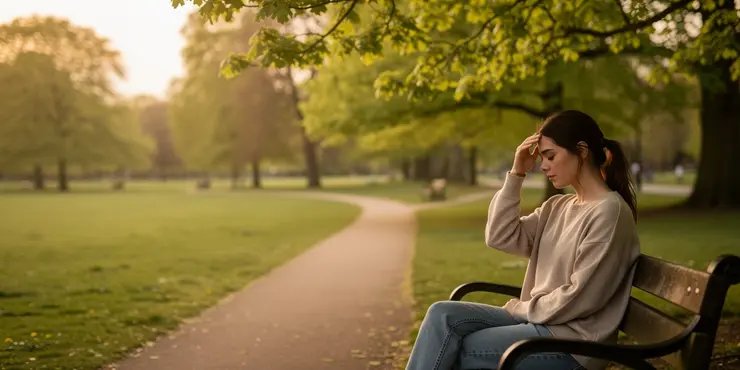
When is it safe to return to normal activities after a concussion?
Relevance: 61%
-
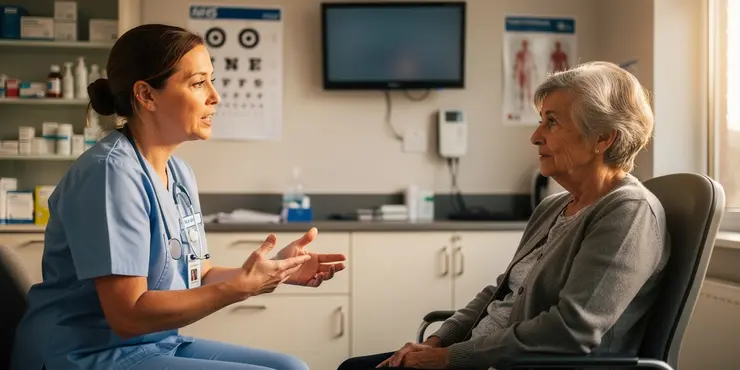
Can hypotony be prevented?
Relevance: 31%
-
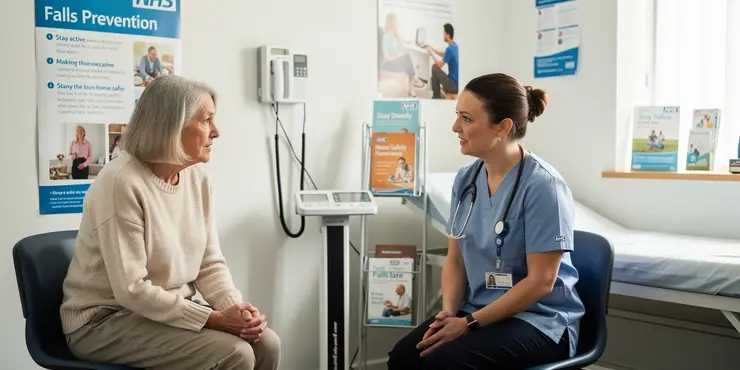
Falls Prevention Podcast
Relevance: 31%
-
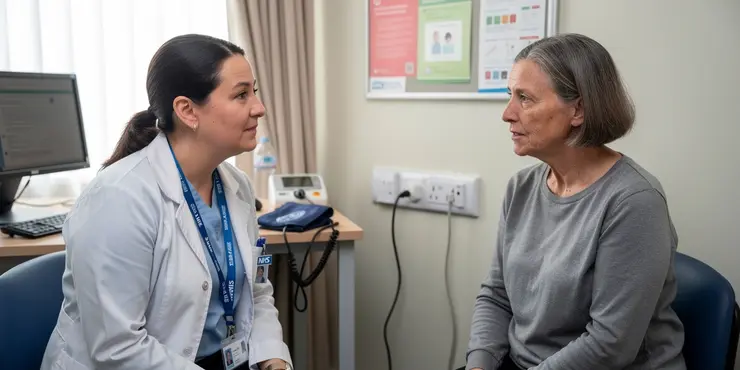
Can CFS be prevented?
Relevance: 31%
-

Can meningitis be prevented?
Relevance: 31%
-

Can gonorrhoea be prevented?
Relevance: 31%
-
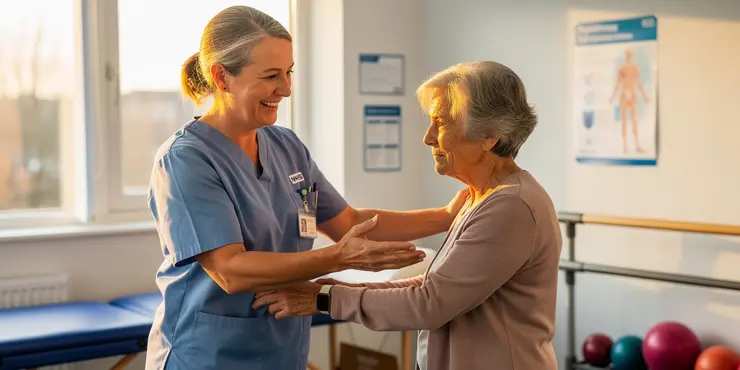
Falls and Falls Prevention
Relevance: 31%
-
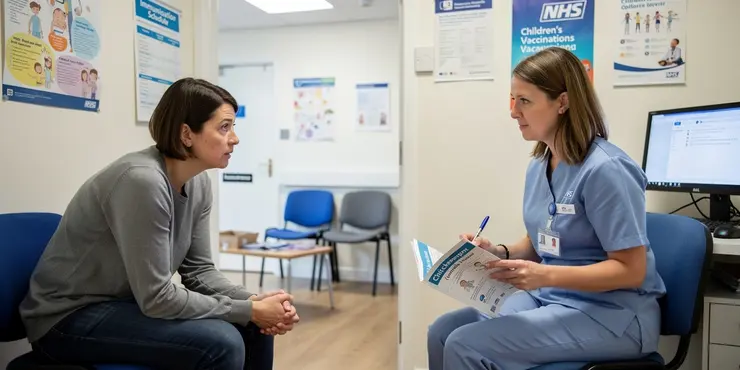
Can chickenpox be prevented?
Relevance: 31%
-

Can Rubella be prevented?
Relevance: 31%
-
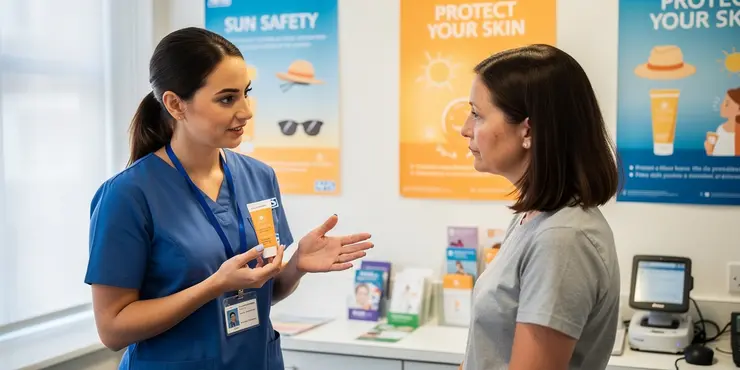
Can sunburn be prevented?
Relevance: 31%
Is There Any Way to Prevent Concussions?
Understanding Concussions
Concussions are a type of traumatic brain injury that occurs when a blow or jolt to the head disrupts normal brain function. Symptoms can include headaches, confusion, dizziness, and memory loss. Although complete prevention of concussions may not always be possible, especially in contact sports or accidents, there are several strategies and precautions that can significantly reduce the risk.Protective Gear
Wearing appropriate protective gear is crucial in activities where head injuries are possible. In sports such as football, rugby, and cycling, helmets are vital to protect the head and absorb impact. It is essential to ensure that helmets fit correctly and meet safety standards set by regulatory bodies. Mouthguards can also help by reducing the risk of jaw injuries and potential concussions.Education and Training
Education plays a critical role in concussion prevention. Athletes, coaches, and parents should be informed about the symptoms of concussions and the importance of reporting any signs immediately. Training should focus on techniques that minimise head impacts, such as proper tackling in rugby or heading in football. Implementing rules that discourage dangerous play and promote safety further reduces risk.Environmental Safety
Ensuring play and work environments are safe is another preventive measure. This includes maintaining playing fields and surfaces to minimise slips and falls. In homes, removing hazards that could cause falls and making use of safety gates or railings can protect children and adults alike from potential head injuries.Policy and Management
Enforcing strict concussion management protocols is essential. Organisations should have policies that require players suspected of having a concussion to be immediately removed from play and assessed by a healthcare professional. Only after thorough evaluation and when they are symptom-free should they be allowed to return to their activities. This "when in doubt, sit out" approach is critical.Technological Advancements
New technologies are emerging that focus on concussion prevention and detection. Some examples include sensor-equipped helmets that monitor impact forces and smartphone apps designed to assess concussive symptoms. Continued research and development in this field could provide additional tools to help prevent and manage concussions effectively. By adopting these preventive measures, individuals and organisations can significantly reduce the risk of concussions and safeguard participants in various activities.How Can We Stop Concussions?
What Are Concussions?
Concussions happen when you get hit on the head, and it makes your brain not work right. This can cause headaches, confusion, dizziness, and trouble remembering things. It can be hard to stop all concussions, especially in sports or accidents. But there are ways to make them less likely.Use Safety Gear
Wearing the right safety gear is very important. In sports like football, rugby, and biking, helmets protect your head. Helmets should fit well and be safe to use. Mouthguards can help protect your jaw and head too.Learn and Train
Learning about concussions helps a lot. Players, coaches, and parents should know the signs of concussions and tell someone right away if they see them. Training should teach how to play safe, like how to tackle in rugby or use your head safely in football. Rules should also keep players safe.Keep Places Safe
Make sure places where you play and work are safe. Keep fields and floors clear and safe to stop falls. At home, remove things that can cause falls and use gates or railings to keep everyone safe.Follow Rules for Safety
Good rules are important. If a player might have a concussion, they should stop playing right away and see a doctor. They should only play again when they feel good and a doctor says it's safe. Remember: "If you're not sure, sit out."Use New Technology
New technology is helping stop and find concussions. Some helmets have sensors that check hits to the head. There are also phone apps that check if you have concussion signs. More research can give us even better ways to help. By using these tips, we can help prevent concussions and keep everyone safer.Frequently Asked Questions
What is a concussion?
A concussion is a type of traumatic brain injury caused by a bump, blow, or jolt to the head or body that can disrupt normal brain function.
Can concussions be prevented?
While it's impossible to completely eliminate the risk of concussions, there are steps you can take to reduce the likelihood, such as wearing protective gear and following safety guidelines.
What protective gear helps prevent concussions?
Wearing helmets that fit properly is crucial in activities like cycling, skating, and contact sports. However, no helmet can fully prevent concussions, so it is important to also follow safety rules.
Are specific sports more likely to cause concussions?
Yes, contact sports such as rugby, football, and boxing have higher risks of concussions. Adhering to proper techniques and guidelines can help mitigate these risks.
How can coaching help in preventing concussions?
Educating coaches and players about the signs of concussions and the importance of safety procedures can help in early identification and prevention.
What role does technique play in reducing concussion risk?
Using proper techniques, such as tackling correctly in rugby or heading the ball safely in football, can reduce the risk of head injuries.
How can rule changes help in preventing concussions?
Introducing and enforcing rules that limit aggressive play and unsafe behaviour in sports can lower the risk of concussions.
Can playing surfaces impact the risk of concussions?
Yes, softer, well-maintained playing surfaces can reduce the impact when falls or collisions occur, potentially lowering concussion risks.
Is it important to have a concussion protocol in sports?
Yes, having a clear protocol for handling suspected concussions ensures timely and appropriate response, potentially preventing further injury.
Can mouthguards help prevent concussions?
Mouthguards are good for protecting teeth and the jaw, but there is no conclusive evidence that they can prevent concussions.
How does awareness play a role in concussion prevention?
Raising awareness among athletes, coaches, and parents about concussion signs and prevention strategies is key to reducing risks.
Are there specific programmes for concussion prevention in the UK?
There are several initiatives and educational programmes in the UK aimed at raising awareness and providing guidelines to prevent concussions in sports and other activities.
How should parents help prevent concussions in their children?
Parents should ensure their children wear appropriate protective equipment, understand the rules of their sport, and know how to play safely.
Should athletes return to play immediately after a concussion?
No, athletes should follow a gradual return-to-play protocol approved by medical professionals to ensure they fully recover before resuming activity.
Is it necessary to educate children about concussions?
Yes, educating children about the importance of safety, recognising concussion symptoms, and the risks involved can empower them to take precautions.
What is a concussion?
A concussion is when your brain gets hurt because of a bump or a hit to the head. It can make you feel dizzy or confused.
Here are some ways to help:
- Rest your body and your brain.
- Tell an adult if you don't feel well.
- Use pictures and videos to learn more.
A concussion happens when you hit your head or body really hard. It can make your brain not work right for a little while.
Can we stop concussions from happening?
A concussion is an injury to your head.
Here are some ways to help stop concussions:
- Wear a helmet when riding a bike or playing sports.
- Use seat belts when in a car.
- Play safely and follow the rules in sports.
If you need help understanding this, you can ask a parent or teacher.
You can't totally stop concussions, but you can do things to make them less likely. You can wear safety gear like helmets, and follow safety rules.
What protective gear can stop head injuries?
Wearing helmets that fit right is very important for things like biking, skating, and playing sports. But helmets cannot stop all head injuries. So, we should also follow safety rules to stay safe.
Can some sports make head injuries happen more often?
Yes, sports like rugby, football, and boxing can lead to more head injuries. Using safe playing rules and good techniques can help make these sports safer.
How can coaches help stop head injuries?
Coaches can teach players how to play safe. They can show the right way to move and protect their heads.
Coaches can remind players to wear helmets. Helmets help keep heads safe.
Coaches can talk about the rules. When players know the rules, they play safer.
Players should tell their coach if they feel hurt. It's important to rest if you have a head bump.
Tools like soft balls and safe gear can help too. They keep everyone safer.
It's important for coaches and players to learn about concussions. They need to know what the signs are. This helps them notice when someone might have a concussion.
When they understand the signs, they can keep everyone safe. Following safety steps can stop concussions from happening.
Here are some things that can help:
- Use pictures or videos to show what a concussion looks like.
- Make a list of the signs to watch for.
- Practice what to do if someone has a concussion.
How does using the right skills help to stop concussions?
When you play sports like rugby or football, it's important to use the right ways to play. For example, in rugby, you should tackle someone the correct way. In football, you should head the ball safely. Doing things the right way can help keep your head safe and stop you from getting hurt.
How can changing rules stop concussions?
Making and following rules that stop rough play and unsafe actions in sports can help prevent head injuries.
Can the type of field affect the chance of getting a head injury?
Yes, soft and well-kept playing surfaces can make falls or bumps less hard. This might help to lower the chance of getting hurt in the head.
Is it important to have a plan for head injuries in sports?
Yes, having a clear plan for dealing with a suspected concussion is important. It helps people act quickly and do the right things, which can stop more injuries from happening.
Do mouthguards help stop head injuries?
Mouthguards help keep teeth and the jaw safe. But we do not know for sure if they can stop concussions.
How can knowing more help stop concussions?
Knowing about concussions can help keep people safe.
A concussion is a type of head injury.
Being aware means understanding what can cause a concussion.
Look out for things that might hurt your head in sports or play.
If you know more, you can make better choices to stay safe.
Use tools like helmets to protect your head.
Stay safe and help others by talking about concussions.
We need to help athletes, coaches, and parents learn about concussions. This means knowing how to spot signs of a concussion and how to prevent them. This way, everyone can stay safer.
Are there programs in the UK to help stop concussions?
Yes, there are programs in the UK to help stop concussions. These programs teach people how to stay safe during sports and activities. They tell you how to wear the right gear, like helmets. They also show you safe ways to play.
If you want help to understand more, you can use pictures or videos. These can explain things better. You can also ask someone to help read with you, like a family member or teacher.
In the UK, there are programs that help people learn about concussions. These programs also give rules to stop concussions from happening in sports and other activities.
How can parents stop their children from getting head injuries?
Parents can help keep their children safe from head injuries, also called concussions, by doing some simple things.
- Wear helmets: Make sure your child wears a helmet when riding a bike, playing sports, or doing any activity where they could hurt their head.
- Safe environment: Check that the places where your child plays are safe and free from hard or sharp objects.
- Rules and techniques: Teach your child how to play sports safely and follow the rules to prevent accidents.
- Rest and recovery: If your child gets a head injury, make sure they rest and see a doctor if needed.
Parents can also talk to their child’s coach or teacher about keeping activities safe.
Parents should make sure their kids wear the right safety gear, know the rules of their game, and learn to play safely.
Can athletes play sports right after a concussion?
Concussions can hurt your brain. If an athlete gets a concussion, it's important to rest. Playing sports too soon can be dangerous.
Here’s what to do:
- Visit a doctor to check your head.
- Rest and stay away from sports and loud places.
- Only return to play when the doctor says it's okay.
Tools that can help:
- Ask a parent or coach for help understanding what to do.
- Use pictures or drawings to make things clearer.
Athletes should take time to rest and get better before playing sports again. Doctors can help make a plan to return safely so they are not hurt again.
Should we teach kids about concussions?
It is important for kids to know about concussions. A concussion happens when you hurt your head. Knowing about it helps them stay safe.
Here are some ways to teach kids:
- Use simple words they understand.
- Show pictures or videos to explain.
- Make learning fun with games.
- Talk about wearing helmets during sports.
Yes, teaching kids why safety is important helps them stay safe. They can learn what a concussion looks like and how to spot it. Understanding the risks helps them make smart choices.
Useful Links
This website offers general information and is not a substitute for professional advice.
Always seek guidance from qualified professionals.
If you have any medical concerns or need urgent help, contact a healthcare professional or emergency services immediately.
Some of this content was generated with AI assistance. We’ve done our best to keep it accurate, helpful, and human-friendly.
- Ergsy carfully checks the information in the videos we provide here.
- Videos shown by Youtube after a video has completed, have NOT been reviewed by ERGSY.
- To view, click the arrow in centre of video.
- Most of the videos you find here will have subtitles and/or closed captions available.
- You may need to turn these on, and choose your preferred language.
- Go to the video you'd like to watch.
- If closed captions (CC) are available, settings will be visible on the bottom right of the video player.
- To turn on Captions, click settings .
- To turn off Captions, click settings again.
More Items From Ergsy search
-

How can concussions be prevented?
Relevance: 100%
-

Is there any way to prevent concussions?
Relevance: 100%
-

How can concussions be prevented?
Relevance: 100%
-

How can concussions be prevented in rugby?
Relevance: 95%
-

Are helmets required in rugby to prevent concussions?
Relevance: 95%
-

Is training available for coaches to help prevent concussions?
Relevance: 92%
-

What is Concussion?
Relevance: 83%
-

Are Concussions common in Rugby?
Relevance: 79%
-

What causes concussions in rugby?
Relevance: 76%
-

How is a concussion diagnosed?
Relevance: 75%
-

Is headache a symptom of a concussion?
Relevance: 75%
-

How is a concussion diagnosed?
Relevance: 73%
-

Can playing sports increase the risk of a concussion?
Relevance: 72%
-

Is there a protocol for managing concussions in rugby?
Relevance: 71%
-

Are children more susceptible to concussions than adults?
Relevance: 71%
-

Can concussions lead to mental health issues?
Relevance: 71%
-

Can a concussion cause memory problems?
Relevance: 71%
-

Is it safe to sleep after a concussion?
Relevance: 71%
-

What are common symptoms of a concussion?
Relevance: 70%
-

What role do schools play in managing concussions?
Relevance: 70%
-

Is there a difference in concussion rates between amateur and professional rugby?
Relevance: 70%
-

Is it safe to sleep after a concussion?
Relevance: 69%
-

Can concussions occur without a direct blow to the head?
Relevance: 67%
-

How do concussions impact long-term health in rugby players?
Relevance: 67%
-

What age groups are most at risk for concussions in rugby?
Relevance: 66%
-

Can players return to play on the same day after a suspected concussion?
Relevance: 66%
-

When is it safe to return to normal activities after a concussion?
Relevance: 65%
-

What support is available for rugby players who suffer concussions?
Relevance: 65%
-

Should people with a concussion avoid screens and technology?
Relevance: 65%
-

What immediate steps should be taken if someone has a concussion?
Relevance: 63%
-

When is it safe to return to normal activities after a concussion?
Relevance: 61%
-

Can hypotony be prevented?
Relevance: 31%
-

Falls Prevention Podcast
Relevance: 31%
-

Can CFS be prevented?
Relevance: 31%
-

Can meningitis be prevented?
Relevance: 31%
-

Can gonorrhoea be prevented?
Relevance: 31%
-

Falls and Falls Prevention
Relevance: 31%
-

Can chickenpox be prevented?
Relevance: 31%
-

Can Rubella be prevented?
Relevance: 31%
-

Can sunburn be prevented?
Relevance: 31%


